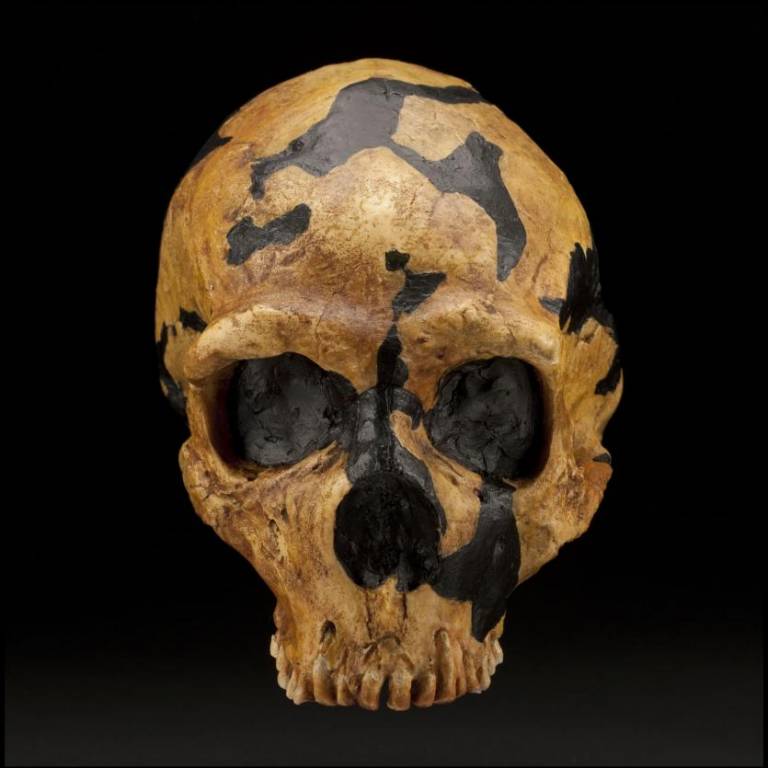Middle Pleistocene Hominin Eye Socket Rim Variation Further Supports Single Species
28 November 2021
This study assessed variation in the supraorbital and orbital region of the Middle Pleistocene hominins (MPHs), sometimes called Homo heidelbergensis s.l., to test whether it matched the expectations of intraspecific variation.

The morphological distinctiveness and relative variation of this region, which is relatively well represented in the hominin fossil record, was analyzed quantitatively in a comparative taxonomic framework. Coordinates of 230 3D landmarks (20) and sliding semilandmarks (210) were collected from 704 specimens from species of Homo, Australopithecus, Paranthropus, Gorilla, Pan, Papio, and Macaca. Results showed that the MPHs had expected levels of morphological distinctiveness and intragroup and intergroup variation in supraorbital and orbital morphology, relative to commonly recognized non-hominin catarrhine species. However, the Procrustes distances between this group and H. sapiens were significantly higher than expected for two closely related catarrhine species. Furthermore, this study showed that variation within the MPH could be similarly well contained within existing hypodigms of H. sapiens, H. neanderthalensis, and H. erectus s.l. Although quantitative assessment of supraorbital and orbital morphology did not allow differentiation between taxonomic hypotheses in later Homo, it could be used to test individual taxonomic affiliation and identify potentially anomalous individuals. This study confirmed a complicated pattern of supraorbital and orbital morphology in the MPH fossil record and raises further questions over our understanding of the speciation of H. sapiens and H. neanderthalensis and taxonomic diversity in later Homo.
Suzanna White, Matt Pope, Simon Hillson, Christophe Soligo
 Close
Close

